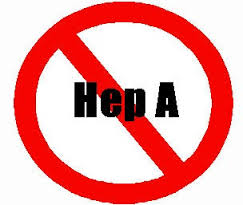Since the end of January, the State Serum Institute has investigated a disease outbreak of contagious hepatitis caused by hepatitis A virus infections. This indicates that the source of infection may be dates, and the case is further investigated in collaboration with the Danish Veterinary and Food Administration and the DTU Food Institute. The outbreak is the second national food-borne outbreak of hepatitis A in Denmark.
 The outbreak thus includes 17 patients, nine women and eight men aged 17 years. Patients have become ill from December 2017 onwards. Patients are resident throughout the country and 16 have been hospitalized. Virus from seven of the patients has been type-approved for type 3A, and for the time being, genetic studies have shown that four of these are identical, which supports the suspicion of a common source of infection. It is still expected that more patients will come, as about four weeks from eating the contaminated dates until you get sick with hepatitis A.
The outbreak thus includes 17 patients, nine women and eight men aged 17 years. Patients have become ill from December 2017 onwards. Patients are resident throughout the country and 16 have been hospitalized. Virus from seven of the patients has been type-approved for type 3A, and for the time being, genetic studies have shown that four of these are identical, which supports the suspicion of a common source of infection. It is still expected that more patients will come, as about four weeks from eating the contaminated dates until you get sick with hepatitis A.
To investigate the source of infection for the outbreak, the State Serum Institute has conducted extensive interviews with patients and made a so-called case-control study. During the initial interviews, dates, as several of the patients indicated to have eaten, were suspected. The correlation between dates and disease risk was then investigated in the case-control study. Here you compare how often patients have eaten a number of specific foods with similar information from a comparable group of healthy Danes.
 The results have shown that the source of infection was most likely to have been dates since patients had far more eaten this food than the comparable group of healthy Danes. The dates are described by most patients as soft dark stones with stones purchased in Rema1000. The results were handed over to the Danish Veterinary and Food Administration, The importer and Rema1000 chose to withdraw the dates on 6 February .
The results have shown that the source of infection was most likely to have been dates since patients had far more eaten this food than the comparable group of healthy Danes. The dates are described by most patients as soft dark stones with stones purchased in Rema1000. The results were handed over to the Danish Veterinary and Food Administration, The importer and Rema1000 chose to withdraw the dates on 6 February .
The likelihood of infectious hepatitis infection caused by infection with Hepatitis A virus by eating dates from Rema1000 is considered very small. Therefore, there is no need to consult a doctor if you have no symptoms of hepatitis A infection.
If you have eaten Rema1000 dadels after 1 December 2017 and develop symptoms of hepatitis such as nausea, madness, abdominal pain, vomiting, diarrhea or fever without any other obvious causes or yellowing of the skin and the whites of the eyes, light colored dye and / or dark , porter-colored urine, consult your own doctor.
